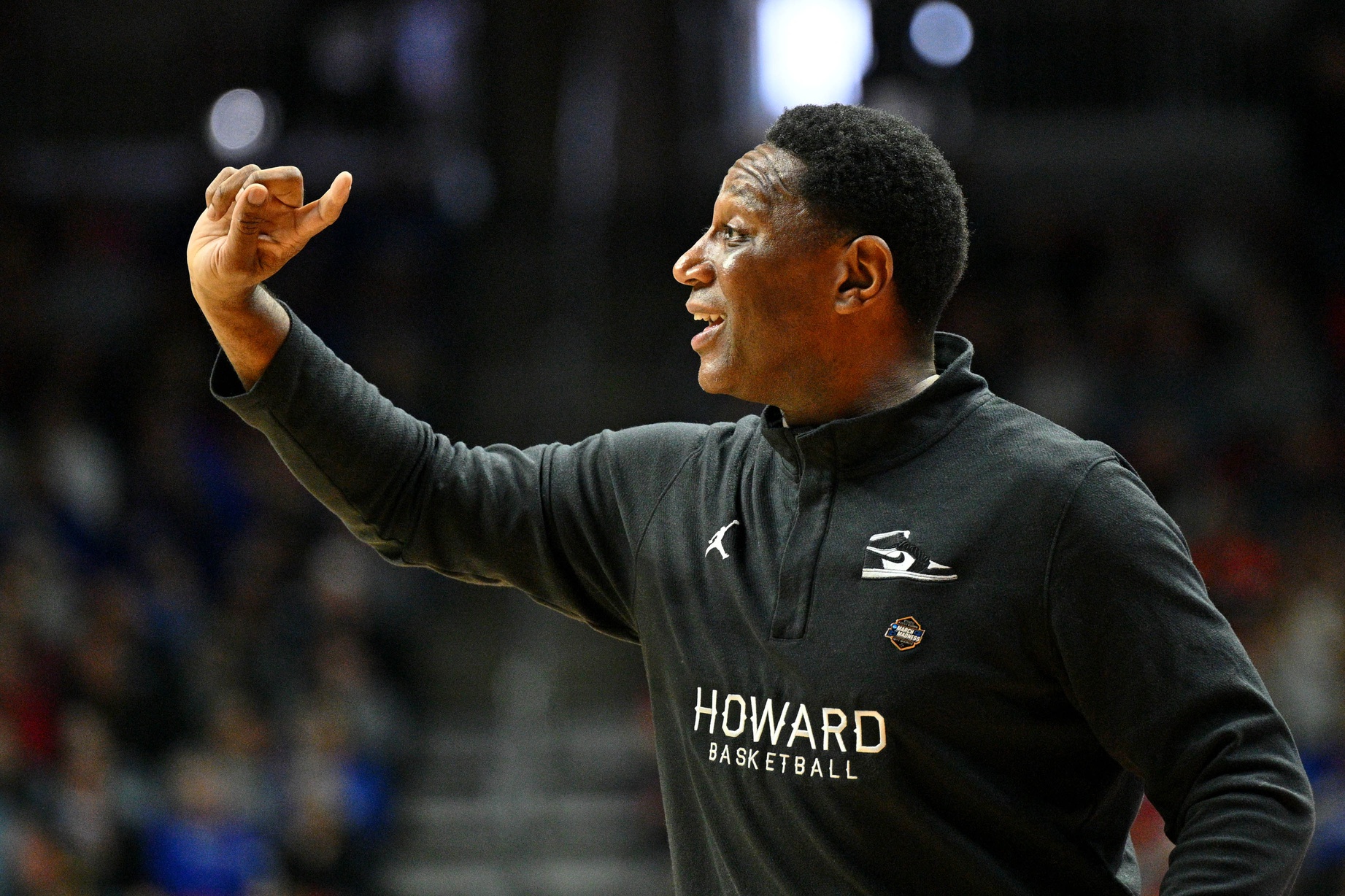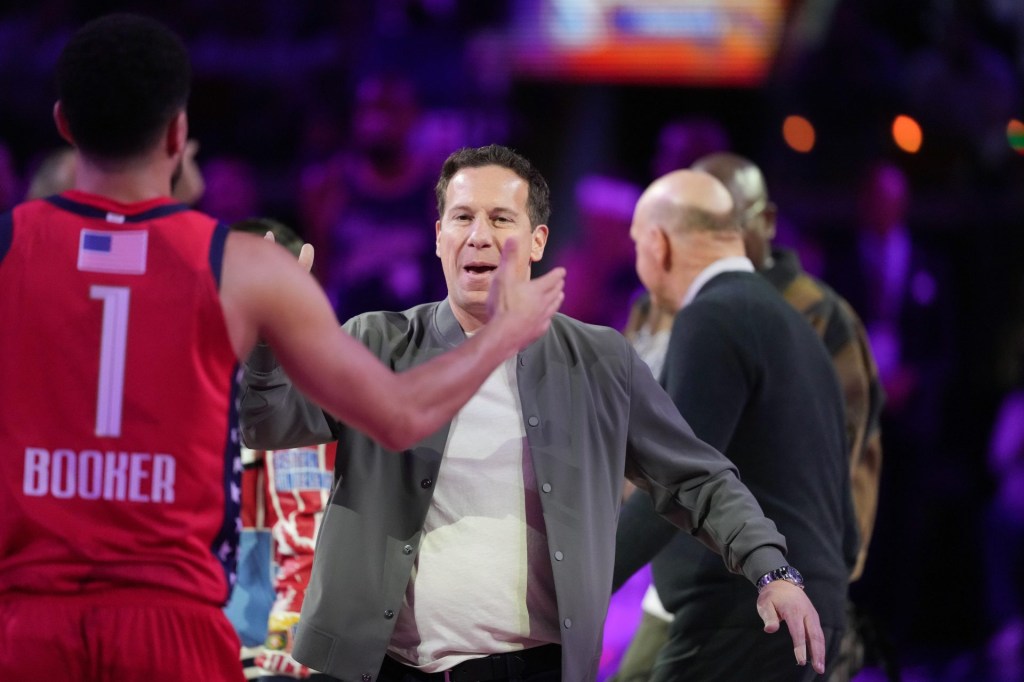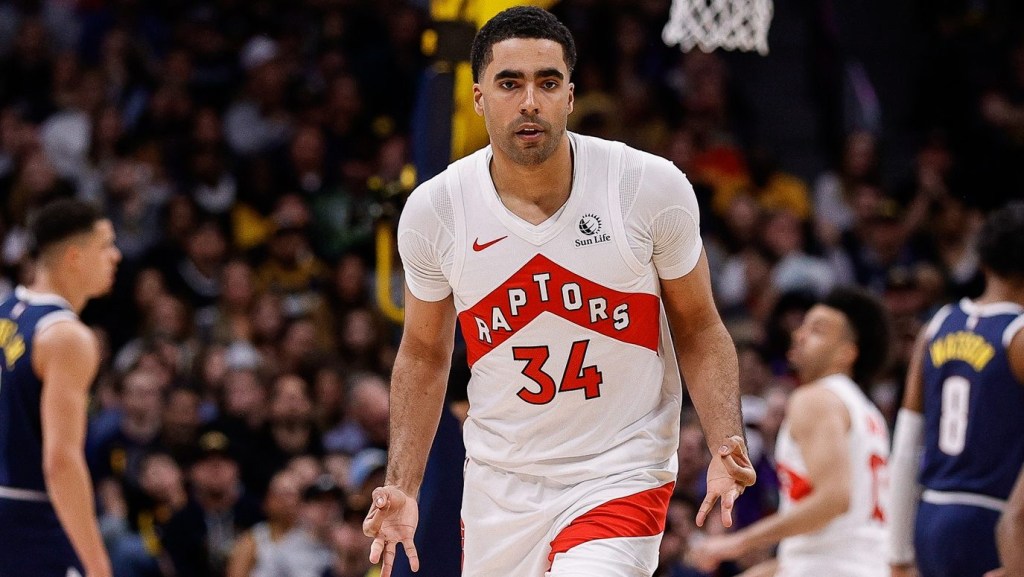Want to own part of Howard’s men’s basketball program?
That will be $100 million.
The Bison, an HBCU and the back-to-back tournament champions of the Mid-Eastern Athletic Conference are currently for sale—sort of—as coach Kenny Blakeney is reportedly offering one-third of the program for nine figures.
In an interview with The Washington Post, Blakeney, a former Duke player and assistant at Columbia and Harvard, said the changing college landscape forced him to get creative.
“College athletics is full-fledged business now,” Blakeney told the Post. “The whole idea is to not get left behind. It’s, ‘How do we include ourselves in this?’
“I don’t want to have a two-tiered system where we’re not able to compete for the NCAA tournament or the national championship. And from what I’m hearing right now, that is a real possibility, that there’s going to be an NCAA tournament that isn’t going to include everyone else, it’s just going to include those Power Four universities and maybe the Big East. That’s not what I signed up for.”
Blakeney has spent his summer pitching the program to private equity groups and potential investors. He said he knows people who have money and want to own an NBA team but don’t have that kind of money, hence an alternative. His program is on the rise, too. In 2023, the program went to its first NCAA tournament since the 1990s, and returned again this year, losing a tight game to Wagner in March’s First Four.
Should he get the money, Blakeney says he would use it to upgrade the team’s arena and practice facility. Neither has naming rights, which he sees as another business opportunity. He would also try to make the program independent from the MEAC or get into a bigger conference and, obviously, pay the players. He’s pitched a three-way revenue split with the investors, school, and program all getting a third.
But there are so many questions remaining. How can Blakeney get a small school like Howard a lucrative TV deal? What do his bosses at the university make of it? (Blakeney hasn’t had any discussions with his bosses because he has yet to find an investor.)
“As for the revenue part, that is the chicken and the egg,” Ricky Volante told Front Office Sports. Volante is a lawyer and was the chief executive of the Professional Collegiate League, which tried to make the HBCUs their own conference a few years ago. “Coach is going to have to show in which someone is viewing this as a true investment and not altruistically driven. He’s going to have to show how this person gets their return and in college sports ultimately that’s driven through media revenue. Outside of Notre Dame and Texas everyone else’s media revenues are driven through the conference.”
And finally, the big one: Is this even legal or within NCAA rules?
That’s to be determined. As one anonymous sports economist told the Post, “There are always ways to get lawyers to write around issues.”
“The potential unknown here is how any of this may be impacted by the House case and the settlement,” Volante says. “If that settlement is truly approved and is enforced by the court as a piece of federal legislation, would the NCAA have the legitimate authority to look at this and say, ‘Absolutely not?’”





![[Subscription Customers Only] Jul 13, 2025; East Rutherford, New Jersey, USA; Chelsea FC midfielder Cole Palmer (10) celebrates winning the final of the 2025 FIFA Club World Cup at MetLife Stadium](https://frontofficesports.com/wp-content/uploads/2026/02/USATSI_26636703-scaled-e1770932227605.jpg?quality=100&w=1024)











